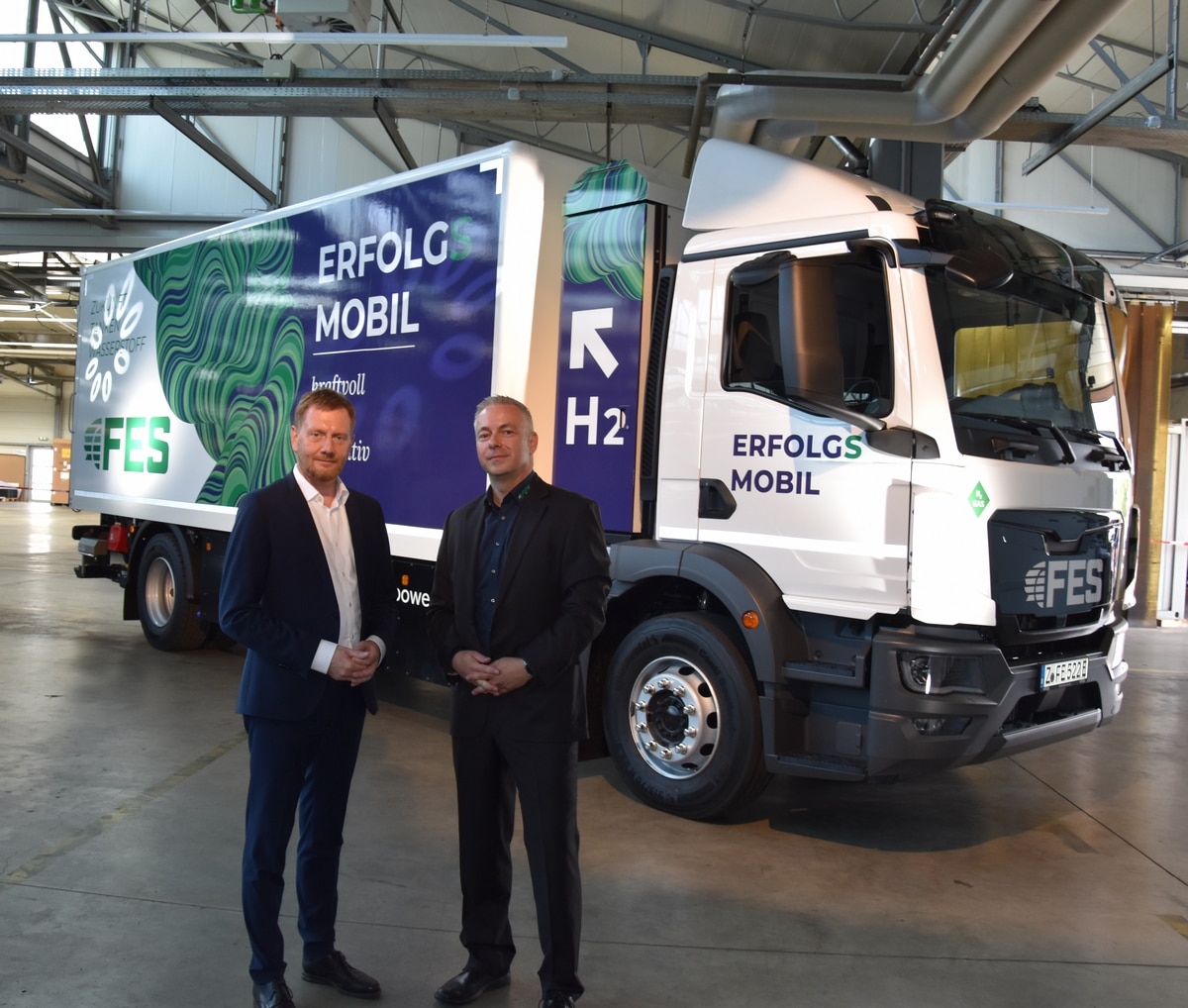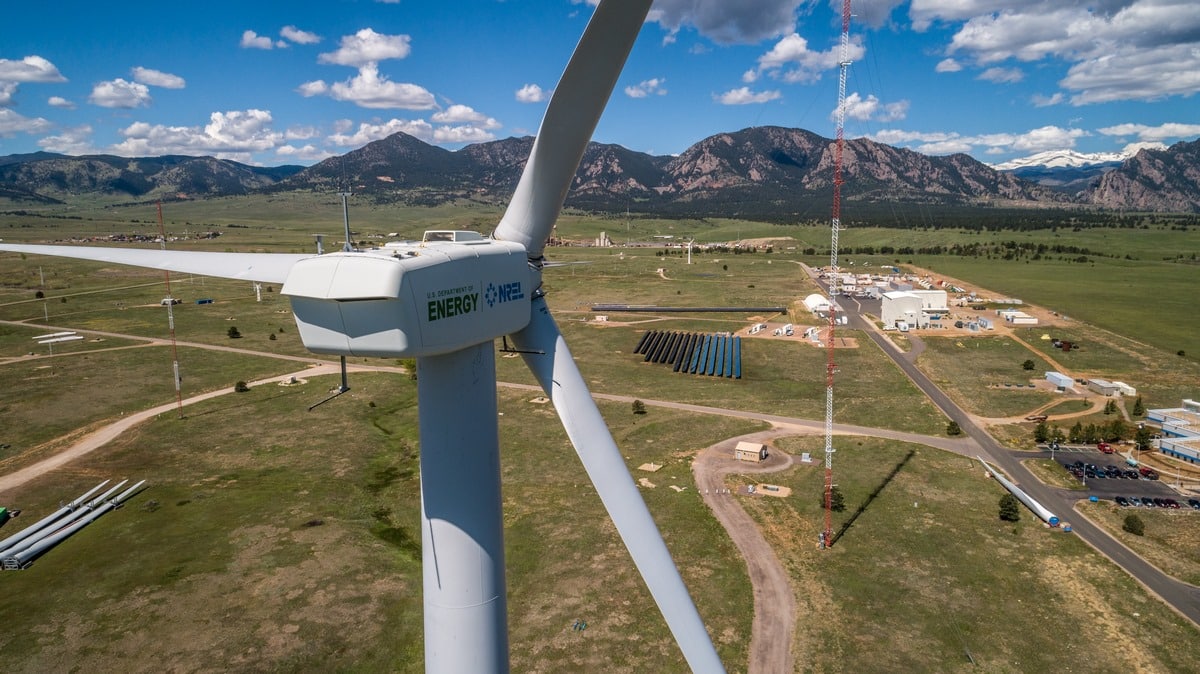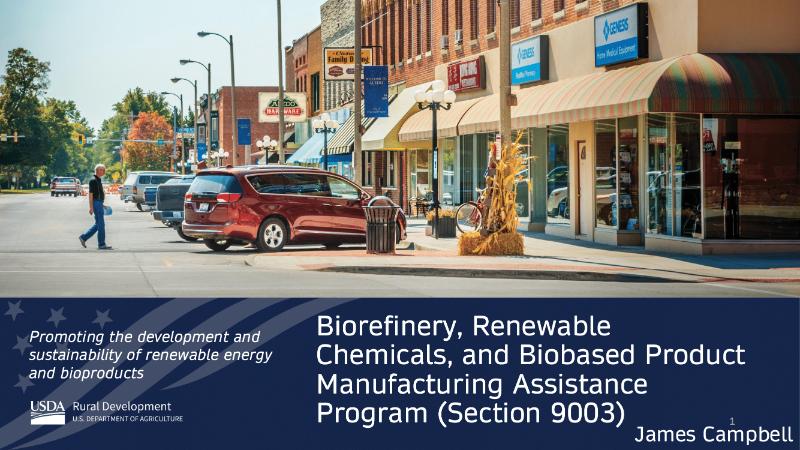
FES unveils H2 truck in Zwickau
Where East Germany’s famous Trabant cars were once made, H2 trucks will now exit cleanly from the production hall. This technological shift from two-stroke engines to fuel cell trucks won’t just benefit automotive service provider FES. Michael Kretschmer, minister president of the German state of Sachsen who witnessed the milestone on July 22, 2024, hopes the region as a whole will reap the rewards.
Minister President Kretschmer said at the presentation: “The unveiling of the FES fuel cell truck is an excellent example of the innovative capability and technical know-how present in Sachsen. Such projects are essential to position Sachsen as a leading center in advanced vehicle development while also contributing significantly to the protection of the environment.”
Former Trabant production site
FES can trace its origins back to 1904 when August Horch Motorwagenwerke was founded. This later gave rise to the Sachsenring Automobilwerke Zwickau in 1957 which became known for the development and production of East Germany’s iconic car – the Trabant – also affectionately known as the “Trabi.”
Following German reunification, in 1992 the company emerged as FES. A member of the Volke Group, FES has since established itself as a development service provider for national and international automotive manufacturers, various suppliers as well as the railroad and aerospace industries. It now employs approximately 850 members of staff.
FES’ ambition is to develop and manufacture vehicles that facilitate “sustainable and environmentally friendly mobility.” That includes both battery and fuel cell power systems. FES has been working in the electric transportation sector for 15 years; seven years ago it was decided to also integrate fuel cells, such as the FEScell system. According to company information, this is the “world’s smallest fuel cell system for autonomous internal logistics vehicles.” In series production since 2021, the systems have been used in industrial trucks at the BMW factory in Leipzig, for instance.

Fig. 2: Cars through the ages – from Trabi to Audi
Christian Schwamberger, CEO of FES (see fig. 1), explained: “In our view, hydrogen is […] a genuine alternative to the internal combustion engine even for goods transportation.” All those involved are particularly proud that “this innovative project” could be carried out “entirely using internal funds and without state support.”
“You have shown through quality and performance that you have what it takes.”
Sachsen’s Minister President Michael Kretschmer
Latest technology from Sachsen
The H2 truck is a production-ready vehicle weighing 18 metric tons which can be variously configured in terms of overall weight (up to 26 metric tons) and layout according to customer specifications. The fuel cell that is used – just like the tank system – is provided by technology partner Toyota; the powertrain is supplied by Framo, which is based in Löbichau.
The electric dual engine has a continuous output of 280 kilowatts, 120 kW of which is delivered by the fuel cell (170 kW from 2025). The LiFePO4 battery enables a maximum output of 308 kW for 30 seconds (the battery can be recharged via a Combined Charging System). According to FES, this type of battery is slightly heavier, but the associated fire risk is lower than in comparable systems.
The carbon-composite hydrogen tanks are located behind the cab and hold 33 kilograms at 700 bar, sufficient energy for the 350- to 500-kilometers (215- to 310-mile) range. FES’ head of development Hartmut Schimmel (see image on page 4) commented: “We built the truck to meet 700 bar, but it can be filled at any 350-bar station.” What’s more, additional H2 tanks can be installed if required.
The base vehicle is a third-generation MAN TGM and can be repaired – if necessary – at a regular workshop. The electric rear axle is designed for 1 million kilometers (620,000 miles), reported Schimmel with pride. He added that this is “no junior research project”; rather the FC truck is “entirely suitable for long distance.”
In addition, Schimmel led H2-international to understand that the FC truck will be available to preorder shortly and ready for delivery from 2025 onward. This assumes that potentially interested parties are now actually prepared to place orders.

Fig. 3: Alongside company owner Martin Volke (left), the former German transportation minister Andreas Scheuer was among the guests of honor – here in conversation with Rainer Albrecht, the founding shareholder of FES in 1992 (right)








